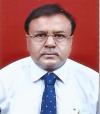Suggest Treatment For Memory Impairment When Diagnosed With Postoperative Cognitive Dysfunction

 Thu, 1 Sep 2016
Answered on
Thu, 1 Sep 2016
Answered on
 Sat, 17 Sep 2016
Last reviewed on
Sat, 17 Sep 2016
Last reviewed on
Postoperative cognitive dysfunction (POCD)
Detailed Answer:
Hi,
Thank you for your query. I can understand your concerns.
Postoperative cognitive dysfunction (POCD) is a subtle disorder of thought processes, which may influence isolated domains of cognition such as verbal memory, visual memory, language comprehension, visuospatial abstraction, attention, or concentration .
Usually it is a short-term decline lasting from a few days to a few weeks after surgery .Memory impairment may be anterograde and/or retrograde amnesia
In rare cases, this disorder may persist for several months after major surgery.
It is more common in elderly than in young individuals,particularly in those with pre-existing cognitive dysfunction.
Hypoperfusion or hypoxia of the brain due to the systemic hypotension or blood loss during surgery is the possible underlying mechanism.
Risk factors for POCD:In general, larger and more invasive operations such as abdominal, thoracic, and vascular surgery, present a greater risk than smaller, simpler procedures such as outpatient surgery .
A history of alcohol abuse is also a risk factor for POCD.
The type of anesthesia (general or regional)might not contribute to the development of POCD.
It is also found that well-educated patients experience less POCD after surgery.
Reassurance about the recovery of these disorders in the following months is often helpful.
You are likely to recover .However you haven't mentioned the type of surgery you have undergone.
Regards
Dr. T.K. Biswas M.D. XXXXXXX
Answered by

Get personalised answers from verified doctor in minutes across 80+ specialties



